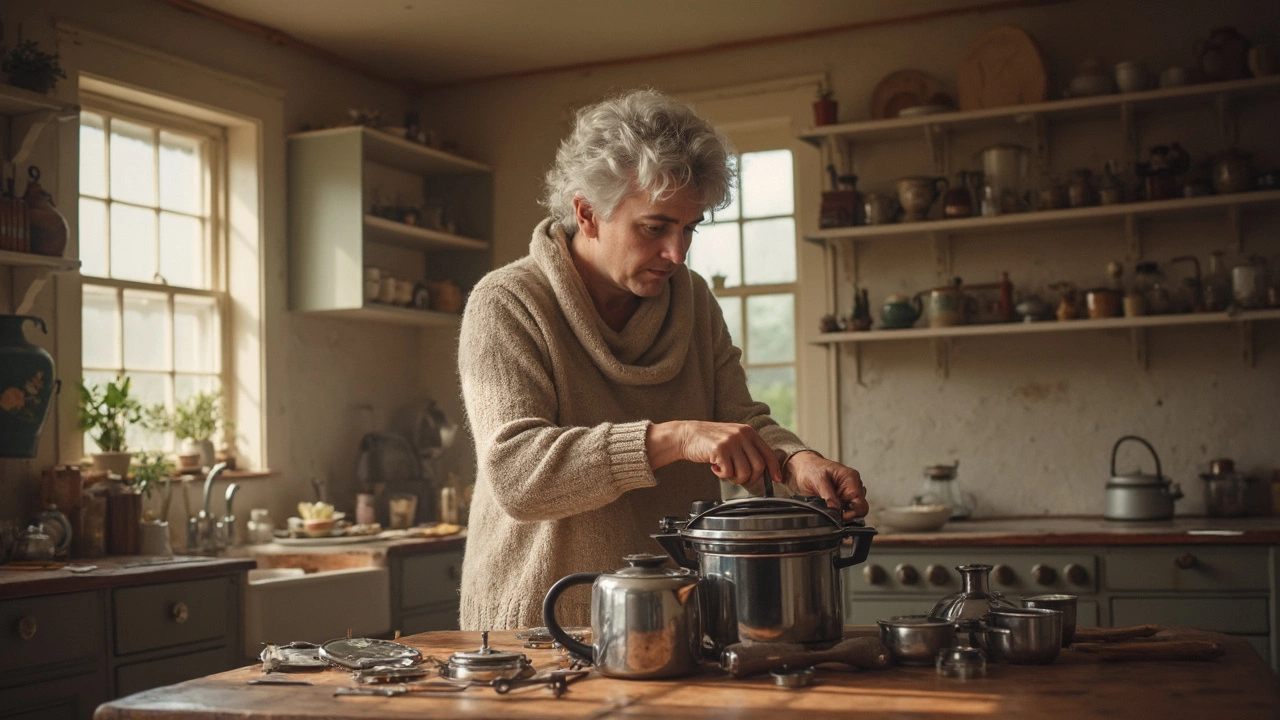Pressure Cooker Maintenance: Keep Your Cooker Safe and Working
If you love fast, tasty meals, a pressure cooker is a kitchen hero. But like any tool, it needs a bit of love to stay safe and efficient. Below are the simple habits that will keep your cooker humming for years.
Everyday Cleaning Routine
After each use, let the cooker cool down before you touch it. Wipe the lid, the handle, and the exterior with a damp cloth. Avoid harsh chemicals – a little dish soap and warm water are enough.
The most important part is the gasket (the rubber seal). Pull it out gently and rinse it under warm water. If it looks dried out or cracked, replace it right away. A good seal is the key to proper pressure and safety.
Check the steam vent and the pressure release valve. Use a thin brush or a toothpick to clear any food bits that might block the flow. A blocked vent can cause dangerous pressure build‑up.
Seasonal Checks & Safety
Every few months, give the cooker a deeper look. Unscrew the pressure regulator (if your model has one) and clean any mineral deposits with vinegar. Rinse well and reassemble.
Inspect the lid’s locking mechanism. It should click firmly into place. If the latch feels loose, tighten the screw or call a professional. A loose lock defeats the safety system.
Before you start a new batch, test the cooker with a small amount of water. Heat it until you hear the steam release. If the pressure builds too quickly or the valve sticks, stop and troubleshoot before cooking anything else.
Store the cooker with the lid off and the gasket removed if you won’t use it for a while. This prevents mold and keeps the seal from stretching.
When you notice rust, dents, or a warped base, it’s time to retire that pot. Damage to the metal can create weak spots that compromise pressure control.
Lastly, keep the user manual handy. Different models have specific steps for cleaning the valve or replacing parts. Following the manufacturer’s advice protects both you and the appliance.
By adding these quick checks to your routine, you’ll avoid most common problems, keep your meals safe, and get the most out of your pressure cooker. Happy cooking!

Can a Pressure Cooker Be Repaired? Essential Facts for Fixing Your Cooker
Pressure cookers can sometimes stop working just when you need them most, but does that mean you have to toss them? This article digs into what goes wrong in pressure cookers and whether you can fix them yourself. It covers how to find faults, what repairs are doable at home, and when it’s smarter to get pro help or go for a new one. You’ll also find helpful tips to make your pressure cooker last longer. If your cooker is giving you trouble, we're about to make things simpler.